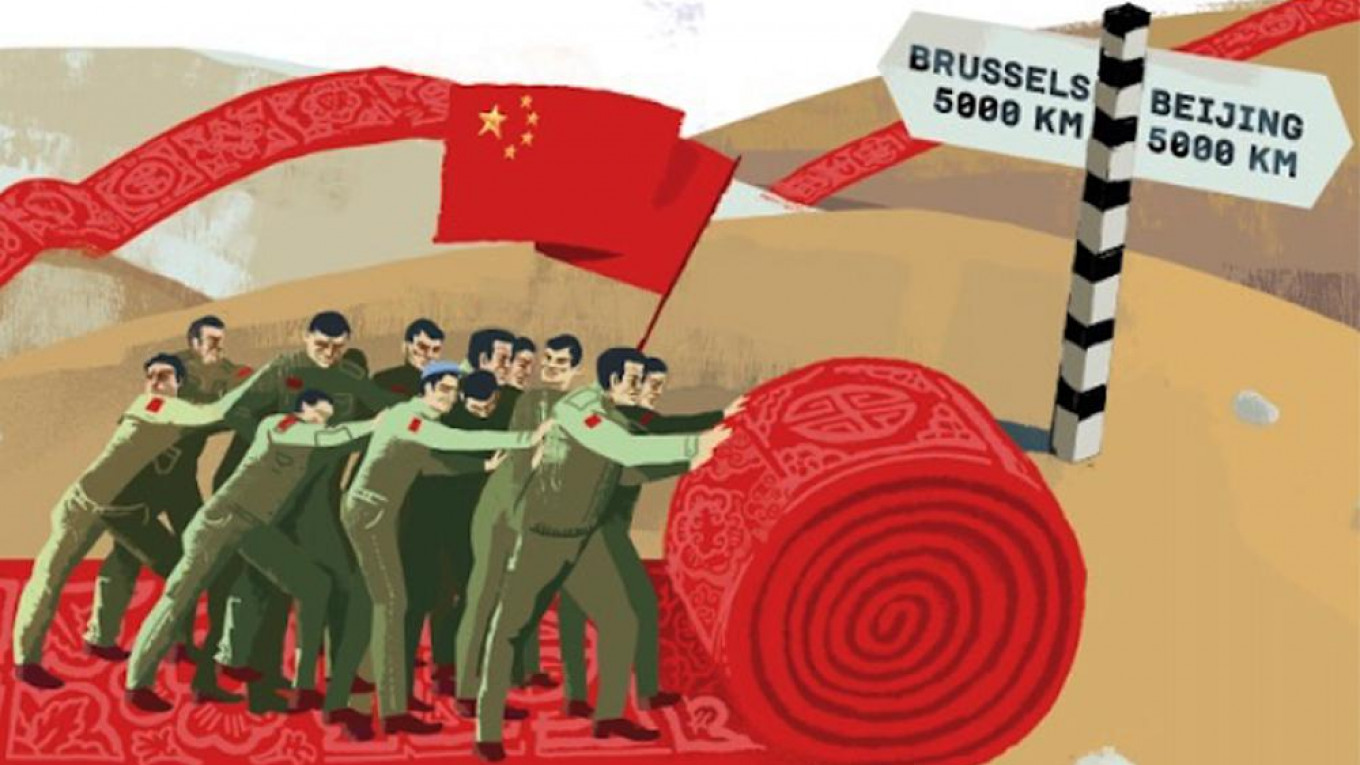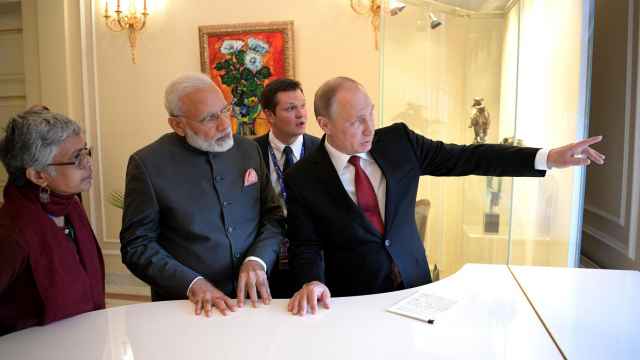Russia’s drive to make China its most important trade partner in terms of dollar turnover is on track, as trade between the two new-found friends increases steadily.
The partners are hoping that trade will hit $80 billion this year and $200 billion by the end of the decade. To help the process along, China has established a new ruble-yuan payment system for settling contracts.
From January to September trade between Russia and China increased by 22.4 percent year-on-year to $61.4 billion, the General Administration of Customs of the People's Republic of China announced on Oct. 13.
During the reporting period, exports from China to Russia increased by 17 percent to $31.4 billion, while imports of Russian goods to China increased by 28.5 percent to $30 billion in the same period.
In September, trade turnover between the two countries amounted to $7.6 billion as Chinese goods worth $3.79 billion were imported in Russia and $3.81 billion worth of goods was supplied from Russia to China.
The volume of Russian-Chinese trade in the end of 2016 grew by 2.2 percent in annual terms, amounting to $69.5 billion.
Trade between Russia and China was running between $5 billion and $8 billion in the 1990s, but has been growing steadily since then. It was on course to hit $100 billion – the previous goal – until the 2008 crisis interceded. Trade slumped back to around $60 billion in 2015 and 2016 but has started to recover again this year.
The European Union remains by far Russia’s most important trade partner, but trade turnover growth has been stagnating in the last few years as political relationship became strained.
Trade with the EU has fallen from 330 billion euros in 2014 to 228 billion euros in 2016 and is likely to fall further. That means if the growing trade with China continues at its current pace, China could replace Europe as Russia’s most important trade partner by 2020.
In August, the Russian Minister of Economic Development Maxim Oreshkin said that the trade turnover between Russia and China in the end of 2017 could reach $80 billion, adding that by 2020 the figure is capable of exceeding $200 billion.
In a related move, China has established a payment versus payment (PVP) system that allows mutual trade contracts to be settled in Chinese yuan and Russian ruble. The goal is to reduce risks and improve the efficiency of its foreign exchange transactions.
In 2008 no contracts were settled in the two trade partners mutual currencies, as the dollar continued to dominate international trade deals. However, today about a quarter of contracts by value is settled in the two national currencies.
The PVP system for yuan and ruble transactions was launched last week after receiving approval from China’s central bank, according to a statement by the country’s foreign exchange trading system.
This is the first time China has offered a PVP system for trading the yuan and foreign currencies, underscoring Beijing's and Moscow’s commitment to deepening trade ties. It is also part of the financial infrastructure that goes along with China’s One Belt, One Road (OBOR) project to create a trading land bridge between Asia and Europe.
PVP systems allow simultaneous settlement of transactions in two different currencies. The China Foreign Exchange Trade System (CFETS), that will oversee the system, said it will reduce settlement risk as well as the risk of transactions taking place in different time zones, and improve foreign exchange market efficiency.
CFETS says it intends to implement the PVP system with other currencies, but the ruble is the first.
A Message from The Moscow Times:
Dear readers,
We are facing unprecedented challenges. Russia's Prosecutor General's Office has designated The Moscow Times as an "undesirable" organization, criminalizing our work and putting our staff at risk of prosecution. This follows our earlier unjust labeling as a "foreign agent."
These actions are direct attempts to silence independent journalism in Russia. The authorities claim our work "discredits the decisions of the Russian leadership." We see things differently: we strive to provide accurate, unbiased reporting on Russia.
We, the journalists of The Moscow Times, refuse to be silenced. But to continue our work, we need your help.
Your support, no matter how small, makes a world of difference. If you can, please support us monthly starting from just $2. It's quick to set up, and every contribution makes a significant impact.
By supporting The Moscow Times, you're defending open, independent journalism in the face of repression. Thank you for standing with us.
Remind me later.






